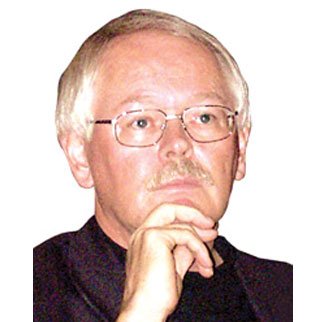
Fr. Ron Rolheiser
Ronald Rolheiser, a Roman Catholic priest and member of the Missionary Oblates of Mary Immaculate, is president of the Oblate School of Theology in San Antonio, Texas.
He is a community-builder, lecturer and writer. His books are popular throughout the English-speaking world and his weekly column is carried by more than seventy newspapers worldwide.
Fr. Rolheiser can be reached at his website, www.ronrolheiser.com.
It is our duty to welcome the stranger
In the Hebrew Scriptures, that part of the Bible we call the Old Testament, we find a strong religious challenge to always welcome the stranger, the foreigner.
Forgiveness can conquer bitterness
One of the dangers inherent in trying to live out a life of Christian fidelity is that we are prone to become embittered moralizers, older brothers of the prodigal son, angry and jealous at God’s over-generous mercy, bitter because persons who wander and stray can so easily access the heavenly banquet table.
God’s power is found in His powerlessness
The French novelist and essayist Léon Bloy once made this comment about God’s power in our world: “God seems to have condemned himself until the end of time not to exercise any immediate right of a master over a servant or a king over a subject. We can do what we want. He will defend Himself only by His patience and His beauty.”
Sabbath rest needed now more than ever
Early Christian monks believed in something they called acedia. More colloquially, they called it the “noonday devil,” a name that essentially describes the concept.
Taking our wounds to the Eucharist
Recently a man came to me, asking for help. He carried some deep wounds, not physical wounds, but emotional wounds to his soul.
Who are we to judge what is a sin?
Recently, while on the road giving a workshop, I took the opportunity to go the cathedral in that city for a Sunday Eucharist. I was taken aback by the homily.
Churches must be a sanctuary for all
Whenever we have been at our best, as Christians, we have opened our churches as sanctuaries to the poor and the endangered.
Connecting the dots between the crib and the cross
The Gospel stories about the birth of Jesus are not a simple retelling of the events that took place then, at the stable in Bethlehem.
End of the world is least of our worries
People are forever predicting the end of the world.
The danger in being a warrior prophet
A prophet makes a vow of love, not of alienation. Daniel Berrigan wrote those words and they need to be highlighted today when a lot of very sincere, committed, religious people self-define as cultural warriors, as prophets at war with secular culture.

